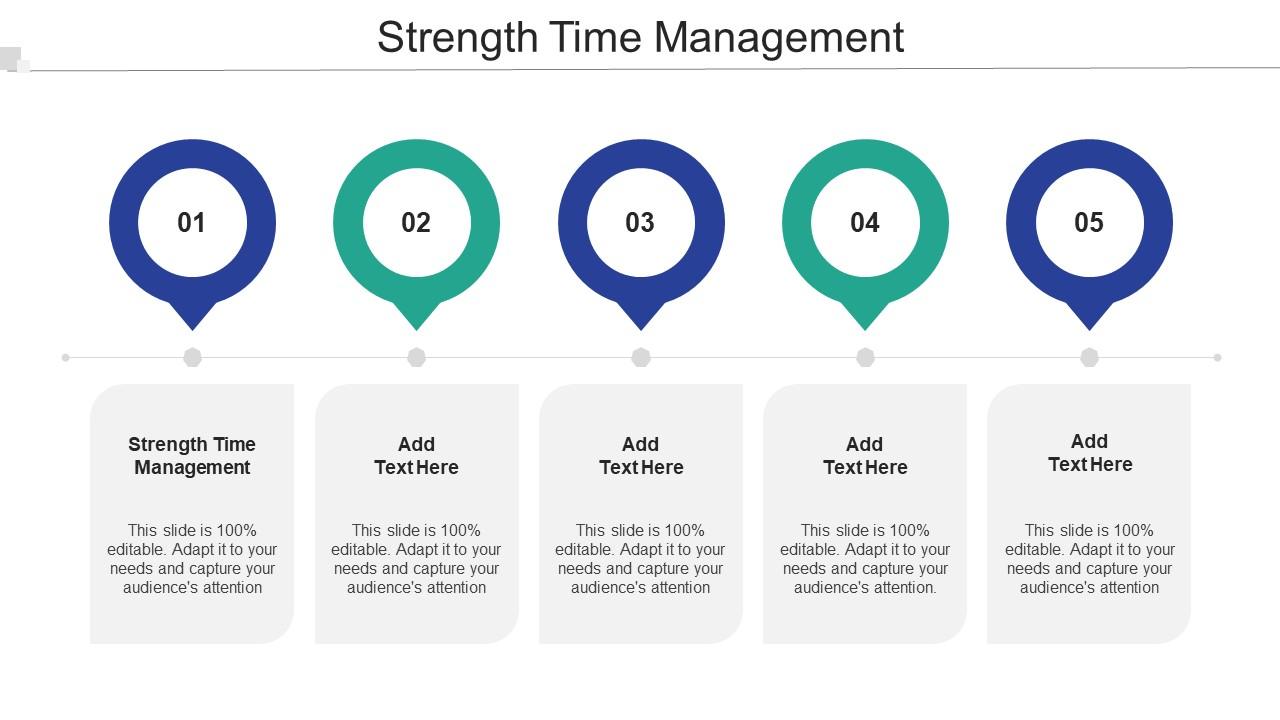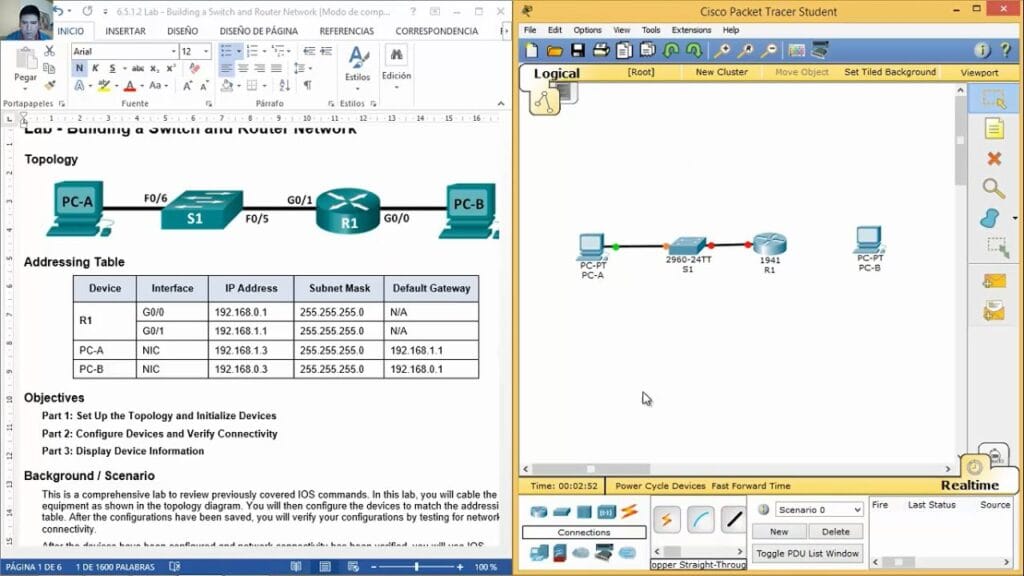Time management is essential in today’s fast-paced world. It helps you achieve more in less time.
Developing strengths in time management can greatly improve productivity. It leads to less stress and a better work-life balance. Understanding time management’s strengths can change how you approach daily tasks. It’s about more than just getting things done. It’s about doing them efficiently and effectively.
Good time management allows you to prioritize important tasks over urgent distractions. This makes sure that your energy goes to what truly matters. Learning to manage time well can also improve focus and decision-making. It can help you set realistic goals and achieve them consistently. With strong time management skills, you can enjoy more free time. This can lead to a more fulfilling personal and professional life.
Importance Of Time Management
Time management plays a crucial role in achieving success. It helps organize tasks efficiently, ensuring each moment counts. Managing time wisely leads to better focus and increased productivity. It allows you to prioritize important tasks, avoid distractions, and meet deadlines effectively. When time is managed well, stress levels decrease and life becomes more balanced. Understanding its importance can significantly improve your day-to-day activities.
Boosting Productivity
Effective time management boosts productivity significantly. When tasks are scheduled properly, you can accomplish more in less time. Planning your day helps maintain focus on important tasks, reducing wasted effort. By allocating specific time slots for each task, you can work with greater efficiency. This approach ensures that your energy is spent wisely, resulting in high-quality output.
Reducing Stress
Managing time effectively reduces stress. Knowing what needs to be done and when it needs to be done provides peace of mind. It minimizes the chaos of rushing last-minute and missing deadlines. Planning allows you to tackle tasks calmly, without feeling overwhelmed. When tasks are organized, you can enjoy a more relaxed and controlled lifestyle.

Credit: www.slideteam.net
Identifying Personal Strengths
Identifying personal strengths in time management can be transformative. Knowing your abilities helps you manage tasks efficiently. It also boosts productivity and reduces stress. Discovering these strengths requires introspection and practical strategies. Let’s explore how to uncover and utilize your unique skills.
Self-assessment Techniques
Start with self-assessment. Reflect on past successes in handling tasks. Consider moments when you felt in control and focused. Note what strategies worked well during those times.
Journaling can aid in this process. Write down daily activities and feelings. Look for patterns in your behavior. Recognize times when you easily completed work.
Seek feedback from peers or mentors. They may notice strengths that you overlook. Their insights can provide a clearer picture of your abilities.
Leveraging Natural Talents
Once identified, use your talents to your advantage. If you excel at planning, create detailed schedules. Break tasks into manageable steps. This can lead to better workflow.
Visual thinkers can use charts or diagrams. These tools help organize thoughts. They make complex information easier to understand.
People skills can be a huge asset. Communicate effectively with team members. Delegate tasks when necessary. This fosters collaboration and saves time.
Remember, play to your strengths. Align them with your goals. This ensures optimal performance and satisfaction.
Setting Clear Goals
Setting clear goals is crucial for effective time management. Without a clear destination, your journey can become aimless and overwhelming. By defining your goals, you give yourself a map to follow, making it easier to manage your time and resources. Goals act as a guiding light, ensuring your efforts are purposeful and productive. But how do you set goals that truly serve you?
Smart Goals Framework
The SMART Goals Framework is a practical tool that helps you set goals that are Specific, Measurable, Achievable, Relevant, and Time-bound. Imagine planning a vacation. You wouldn’t just say, “I want to travel.” Instead, you’d specify the destination, set a budget, and decide on travel dates. This clarity ensures you know what you need to do next. Are your current goals SMART enough to guide you effectively?
Aligning Goals With Priorities
Aligning your goals with your priorities is essential for success. Think about your daily tasks. Are they moving you closer to your important goals? Or are they just keeping you busy? Identify what’s truly important in your life and ensure your goals reflect these priorities. When your goals align with what matters most, you’re more likely to stay motivated and focused. Can you see how aligning goals with priorities can transform your productivity?
Consider a time when you felt overwhelmed with tasks. You might have realized that not all tasks were equally important. By prioritizing, you can focus on what truly drives your goals forward. Next time you set a goal, ask yourself: Is this aligned with my top priorities?
Setting clear goals doesn’t just organize your schedule; it empowers you to achieve more. How do you plan to set your next goal?
Prioritization Techniques
Effective time management is crucial for achieving goals and maintaining balance. Prioritization techniques can help organize tasks efficiently. These methods ensure that important tasks receive the attention they deserve. Understanding and applying these techniques can enhance productivity and reduce stress. Below are two popular prioritization techniques that can transform your time management skills.
The Eisenhower Matrix
The Eisenhower Matrix divides tasks into four categories. This method ranks tasks based on urgency and importance. Quadrant one includes urgent and important tasks. These require immediate action. Quadrant two covers important but not urgent tasks. Focus here to prevent future crises. Quadrant three contains urgent but not important tasks. Delegate these if possible. Quadrant four holds tasks that are neither urgent nor important. Avoid or eliminate these tasks.
Abcde Method
The ABCDE Method categorizes tasks using five labels. ‘A’ tasks are most important. These have serious consequences if not completed. ‘B’ tasks are important but less critical. ‘C’ tasks have no real consequences. ‘D’ tasks should be delegated. ‘E’ tasks should be eliminated if possible. This method helps prioritize by impact rather than urgency.
Effective Scheduling Strategies
Effective scheduling strategies can significantly improve your time management skills. By organizing tasks efficiently, you can achieve more in less time. Scheduling helps prioritize duties and reduces stress. Learning to manage your time well is a valuable skill.
Time Blocking
Time blocking is a powerful scheduling method. It involves dividing your day into blocks of time. Each block is dedicated to a specific task or group of tasks. This strategy helps you focus and reduces distractions. It also ensures you allocate enough time for important tasks. By planning your day in blocks, you can be more productive.
Creating A Daily Routine
Establishing a daily routine brings structure to your day. It helps you know what to expect and when. A routine can include morning rituals, work tasks, and leisure activities. This consistency boosts productivity and reduces decision fatigue. A routine helps you stay organized and manage time effectively.
Overcoming Procrastination
Building strengths in time management helps overcome procrastination. Efficient planning prevents delays and keeps tasks on track. Prioritizing activities boosts productivity and reduces stress.
Procrastination is often seen as the arch-enemy of effective time management. It’s that little voice that tells you, “I’ll do it later,” even when you know now is the best time. Overcoming procrastination is essential to harnessing your strengths in time management. Imagine finishing tasks promptly and having more free time. Sounds appealing, right? Let’s dive into how you can achieve that.###Identifying Causes
Understanding why you procrastinate is the first step to overcoming it. Is it fear of failure or perfectionism? Sometimes, tasks feel overwhelming, and you delay starting them.Consider a time when you put off a project until the last minute. Was it because you felt unsure about how to start? Identifying these causes helps you tackle procrastination head-on.Ask yourself: What stops you from taking action right now?###Implementing Solutions
Once you’ve identified the root causes, it’s time to implement solutions. Break tasks into smaller, manageable parts. This makes them less daunting and easier to start.Set clear deadlines and prioritize tasks. Use a planner or digital tool to organize your schedule. These actions create a roadmap, making it easier to navigate your day.Can you commit to tackling one small task today?Develop a reward system. Treat yourself after completing a task to motivate yourself. Rewards don’t have to be big; even a small treat can boost your morale.Remember, every small step forward counts towards overcoming procrastination. You’re capable of managing your time wisely.Utilizing Technology Tools
Technology tools enhance time management by organizing tasks efficiently. They streamline schedules, helping you prioritize and meet deadlines. Stay focused and boost productivity with digital reminders and trackers.
Utilizing technology tools can greatly enhance time management skills. In today’s fast-paced world, technology offers a variety of tools. These tools help streamline tasks and improve efficiency. By incorporating digital solutions, you can manage time better. Let’s explore some key tools that can support effective time management.Productivity Apps
Productivity apps can be a lifesaver. They help you track tasks and deadlines. Apps like Todoist and Asana are popular choices. They allow you to list tasks and set priorities. This ensures you focus on what’s important. Many apps also send reminders. This helps you stay on track and avoid missing deadlines. Choose an app that suits your style and needs.Digital Calendars
Digital calendars are essential for time management. They offer a clear view of your schedule. Google Calendar and Outlook are widely used options. You can schedule meetings, appointments, and tasks. Setting alerts ensures you never miss an important event. Color-coding events can help you categorize tasks. This visual aid makes it easier to manage time. Digital calendars also sync across devices. This means you have your schedule at your fingertips, always.Maintaining Work-life Balance
Balancing work and personal life thrives with strong time management. Prioritizing tasks efficiently reduces stress and enhances productivity. Allocating time wisely fosters harmony between professional duties and personal interests, creating a fulfilling lifestyle.
Maintaining work-life balance can feel like juggling flaming swords while riding a unicycle. Yet, it’s crucial for your mental health and overall happiness. When you manage your time well, you can enjoy both professional success and personal fulfillment. Finding that balance isn’t just about splitting hours evenly between work and home. It’s about being fully present where you are and making the most of your time. Let’s dive into how you can achieve this balance effectively.Setting Boundaries
Setting boundaries is essential to maintaining a healthy work-life balance. Imagine trying to work with constant interruptions or personal calls every five minutes. It’s chaotic and unproductive.Create clear lines between your work and personal life. Decide on specific work hours and stick to them. Let your colleagues know when you’re available and when you’re not.Consider using a separate phone or email for work. This can help you disconnect at the end of the day. Prioritize your tasks and learn to say no when necessary. Saying no can be empowering and free up time for what truly matters.Ensuring Personal Time
Personal time is not a luxury; it’s a necessity. Without it, you risk burnout and decreased productivity at work. Think of personal time as an investment in your well-being.Schedule regular breaks throughout your day. Even a short walk or a few minutes of deep breathing can recharge you. Make plans with friends or family and treat those appointments as seriously as work meetings.Take up a hobby that brings you joy and relaxation. Whether it’s painting, reading, or gardening, dedicating time to what you love can rejuvenate your spirit. You’ll return to work with renewed energy and focus.How often do you pause to reflect on your time management? Assess your daily routine and identify areas where you can improve your work-life balance. Making small adjustments can lead to big changes in your quality of life.Continuous Improvement
Time management is a journey rather than a destination. Continuous improvement is about refining your skills and adapting to changes. It’s about finding better ways to use your time effectively.
Your ability to improve depends on your willingness to learn. Are you open to new methods and ideas? Embracing change can unlock new opportunities to enhance your productivity.
Reflecting On Progress
Reflection is crucial for growth. Spend time reviewing your achievements and setbacks. What worked well? What needs tweaking?
Personal experiences are valuable here. Consider the last project you tackled. Did you meet your deadlines? Reflect on the strategies that helped you succeed.
This reflection helps you identify patterns. Are there recurring issues? Addressing these can prevent future time-wasting habits.
Adapting New Strategies
Be open to change. New strategies can boost your efficiency. Have you tried a new tool or method recently? How did it impact your time management?
Consider experimenting with different approaches. Maybe a digital calendar or a productivity app could make a difference. Test these strategies to find what works for you.
Ask yourself: Are you clinging to outdated methods? Being flexible can lead to better results and less stress.
Improvement is a continuous process. Embrace change and stay committed to refining your skills. Your dedication can transform your time management and boost your productivity.

Credit: twproject.com

Credit: slideplayer.com
Frequently Asked Questions
What Is The Strength Of Time Management?
Effective time management boosts productivity, reduces stress, and improves focus. It helps prioritize tasks efficiently and meet deadlines. By managing time well, individuals can balance work and personal life, enhancing overall satisfaction. Good time management skills lead to better decision-making and increased opportunities for success.
How Do You Say Time Management As A Strength?
Effective time management enhances productivity, prioritizes tasks, meets deadlines, and reduces stress. It shows reliability and organizational skills.
What Are The Qualities Of A Good Time Management?
A good time management involves setting clear goals, prioritizing tasks, planning ahead, and minimizing distractions. It requires self-discipline, adaptability, and effective delegation skills. Consistent review and adjustment of plans ensure optimal productivity and efficiency.
What Are The 5 Tips In Effective Time Management?
Prioritize tasks based on urgency and importance. Set realistic goals and deadlines. Use calendars or planners to stay organized. Break tasks into smaller, manageable steps. Eliminate distractions to maintain focus.
Conclusion
Good time management boosts productivity and reduces stress. It helps you focus on priorities. With effective planning, tasks become manageable and deadlines achievable. Small steps lead to big results. Organizing your schedule saves precious time. Break tasks into smaller parts for easier handling.
Recognize strengths to improve efficiency. Stay flexible to adapt to changes. Practice regularly to enhance skills. Time management isn’t just about work. It improves personal life too. Balancing time leads to a happier, more fulfilled life. Start small. Discover what works best for you.
Enjoy the benefits of better time management.










